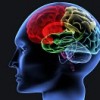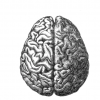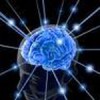Posts tagged neurons

Origin of ALS discovered
Oct 24th
ALS (amyotrophic lateral schlerosis, a.k.a. Lou Gehrig’s disease) is a devastating disease which kills motor neurons, leaving patients paralyzed and unable to function. Although patients remain aware and for the most part mentally undamaged, most patients die within 2-3 of onset as the disease progressively leaves them trapped in a body that is unable to function. As motor neurons die, the person’s muscles weaken and atrophy, and patients will eventually develop respiratory difficulties leading to death.
Unfortunately very little is known about how this disease develops, so a new breakthrough published in Neuron (and by a second group also in Neuron) is More >

Will insulin come to the rescue of AD patients?
Sep 27th
Alzheimer disease (AD) is a neurodegenerative disease of the brain that is divided into early- and late-onset groups. AD is characterized by the build up of amyloid plaques, neurofibrillary tangles and the loss of connections between neurons. It is the most common type of dementia especially in the elderly. The exact causes of AD are elusive at the moment but are most likely the result of genetics and other factors. Scientist have been working hard to identify individual and or groups of genes responsible for the disease. Although the scientific community has identified may genes involved in early and late More >

A Step Towards Understanding Alzheimer’s
Mar 10th
Alzheimer’s disease is a debilitating disease where neurons in the brain die. These neurons are called basal forebrain cholinergic neurons and their job is to help the hippocampus retrieve memories in the brain. Alzheimer’s disease patients do not have the ability to retrieve memories. It’s not that those memories are lost, they just cannot be retrieved. In early Alzheimer’s, these special neurons die. Since there are so few to be found within the brain, their death can quickly become devastating.
Northwestern Medicine researchers have made a major discovery that can aid in understanding and treating Alzheimer’s. These researchers have taken human More >

